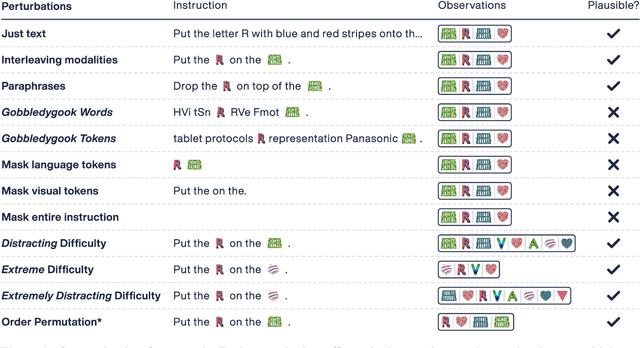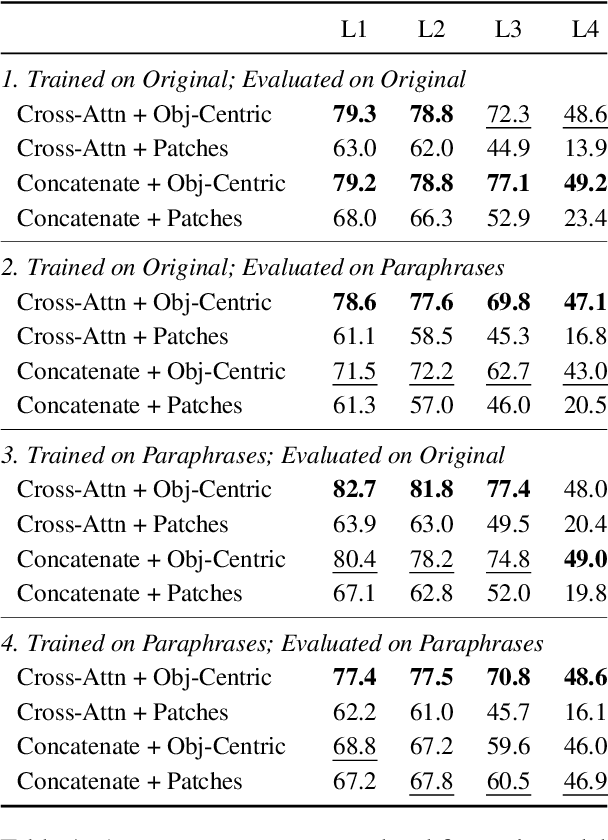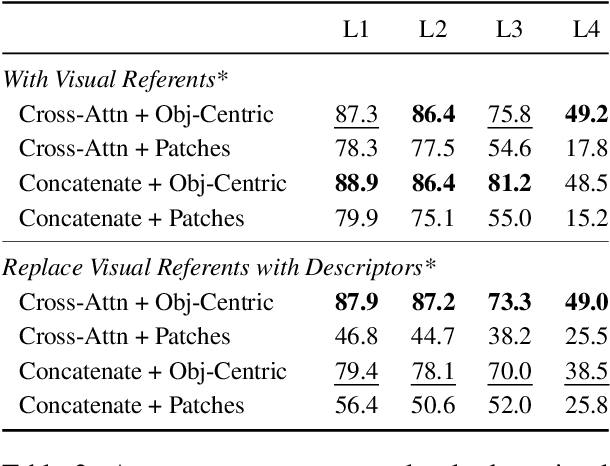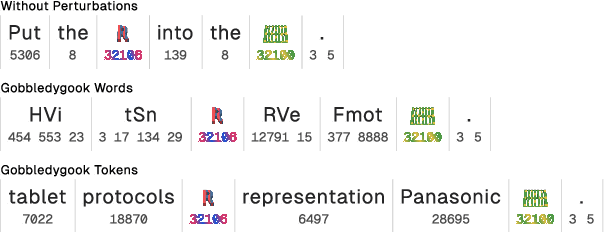Investigating the Role of Instruction Variety and Task Difficulty in Robotic Manipulation Tasks
Paper and Code
Jul 04, 2024



Evaluating the generalisation capabilities of multimodal models based solely on their performance on out-of-distribution data fails to capture their true robustness. This work introduces a comprehensive evaluation framework that systematically examines the role of instructions and inputs in the generalisation abilities of such models, considering architectural design, input perturbations across language and vision modalities, and increased task complexity. The proposed framework uncovers the resilience of multimodal models to extreme instruction perturbations and their vulnerability to observational changes, raising concerns about overfitting to spurious correlations. By employing this evaluation framework on current Transformer-based multimodal models for robotic manipulation tasks, we uncover limitations and suggest future advancements should focus on architectural and training innovations that better integrate multimodal inputs, enhancing a model's generalisation prowess by prioritising sensitivity to input content over incidental correlations.
 Add to Chrome
Add to Chrome Add to Firefox
Add to Firefox Add to Edge
Add to Edge